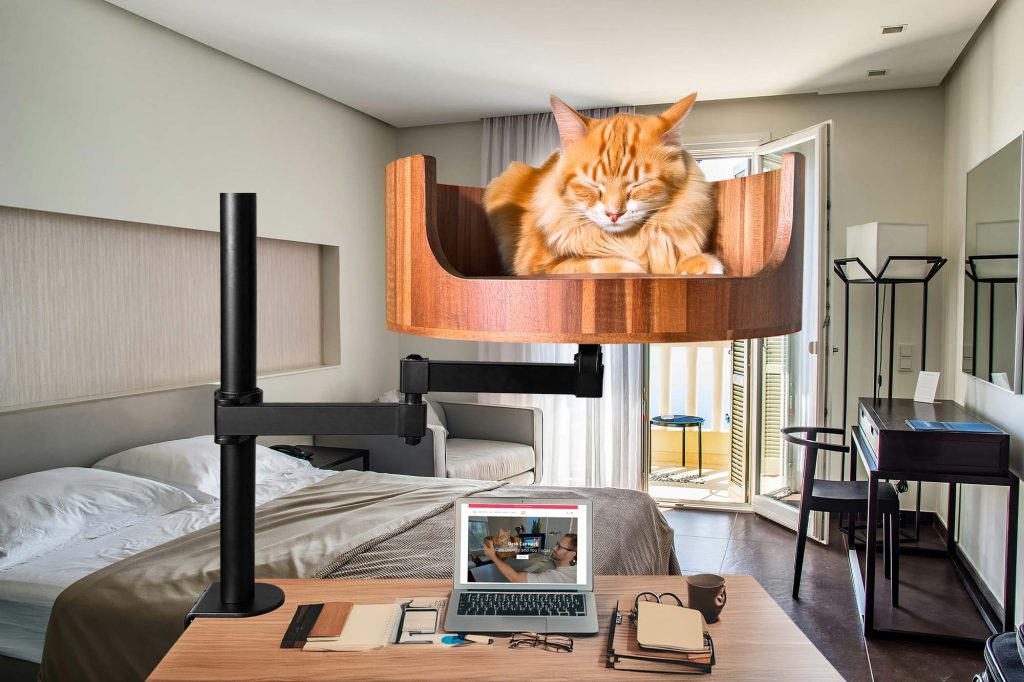Have you ever heard your elderly cat howling in the middle of the night, leaving you puzzled and somewhat worried? This behavior, known as caterwauling, is common in older cats and can be a sign of various underlying issues. Understanding why your old cat is howling can help you address the root cause and provide better care for your feline friend.
In this article, we will delve into the reasons why old cats howl, explore the potential factors contributing to this behavior, and provide tips on how to manage and alleviate it. From age-related health issues to cognitive decline, we will discuss the possible explanations for your cat’s vocalizations and offer guidance on when to seek veterinary advice. By gaining insight into your old cat’s behavior, you can create a comfortable and supportive environment that meets their needs and ensures their overall well-being. Let’s unravel the mystery behind your old cat’s howling and learn how to decipher their unique language.
1. Howling in older cats can be a sign of cognitive dysfunction or medical issues, so it’s important to consult a veterinarian for a proper diagnosis.
2. Providing a comfortable environment for your aging cat, including cozy nests and easily accessible litter boxes, can help reduce howling behaviors.
3. Engaging your senior cat in interactive play and mental stimulation can help keep their mind sharp and alleviate anxiety.
4. Maintaining a consistent routine and showing patience and understanding towards your older cat’s needs can greatly improve their quality of life.
5. Understanding the reasons behind your cat’s howling behavior can lead to better communication and a stronger bond with your feline companion.
Causes of Old Cat Howling
Old cats may start howling for a variety of reasons as they age. One common cause is cognitive dysfunction syndrome, a condition similar to dementia in humans. This can result in confusion, disorientation, and vocalization. Other potential causes include pain from arthritis or other ailments, changes in their environment, such as moving to a new home, or sensory decline. It’s essential to consult with a veterinarian to rule out any underlying medical issues causing your old cat to howl.
Strategies to Help Your Old Cat
There are several strategies you can implement to help alleviate your old cat’s howling behavior. Providing your feline friend with a calm and quiet environment can help reduce stress and anxiety that may be contributing to the vocalization. Creating a comfortable and familiar spot for your cat to rest can also be beneficial, such as a cozy cat nest with soft bedding and toys. Additionally, engaging your cat in regular play and exercise can help keep them mentally stimulated and satisfied.
Seeking Professional Help
If your old cat’s howling behavior persists or worsens despite your best efforts, it may be time to seek professional help. Veterinarians and animal behaviorists can assess your cat’s behavior, provide further insight into the underlying causes of the howling, and develop a tailored treatment plan. This may include medication for pain management or behavioral modification techniques to address the root of the problem. Remember, it’s essential to be patient and understanding with your old cat as they navigate their golden years.
Frequently Asked Questions
Can the Desk Cat Nest help reduce my old cat’s howling?
Yes, the Desk Cat Nest provides a cozy and comfortable space for your cat to rest, which can help reduce stress and anxiety that may be causing the howling. The familiar and secure environment of the cat nest can also promote better sleep, leading to a calmer and quieter cat.
My old cat has arthritis. Is the Desk Cat Nest suitable for them?
Absolutely! The Desk Cat Nest is designed with a soft and plush cushion that provides ample support for aching joints. The elevated platform also allows your cat to easily climb in and out without putting added strain on their body.
How should I introduce my old cat to the Desk Cat Nest?
It’s recommended to place the Desk Cat Nest in a quiet and familiar area where your cat likes to spend time. You can entice them with treats or toys to explore the nest at their own pace. Additionally, adding their favorite blanket or bedding to the nest can make it more inviting for them.
Will the Desk Cat Nest be easy to clean and maintain?
Yes, the Desk Cat Nest features a removable and washable cushion for easy cleaning. The durable materials used in the construction of the nest ensure that it can withstand regular use and remain in good condition with minimal maintenance.
Can multiple cats use the Desk Cat Nest at the same time?
While the Desk Cat Nest is designed to accommodate one cat comfortably, it is possible for multiple cats to share the space depending on their size and preferences. However, it’s important to monitor their interactions to ensure that all cats have equal access to the nest.
In conclusion, Desk Cat Bed is an essential solution for alleviating old cat howling. By providing a comfortable and secure resting place for your aging feline friend, this bed can help reduce anxiety and stress which are common triggers for excessive vocalization in older cats. Additionally, the orthopedic design of Desk Cat Bed offers joint support and encourages restful sleep, leading to a happier and quieter kitty. Invest in a Desk Cat Bed today and give your senior cat the comfort and peace they deserve.


